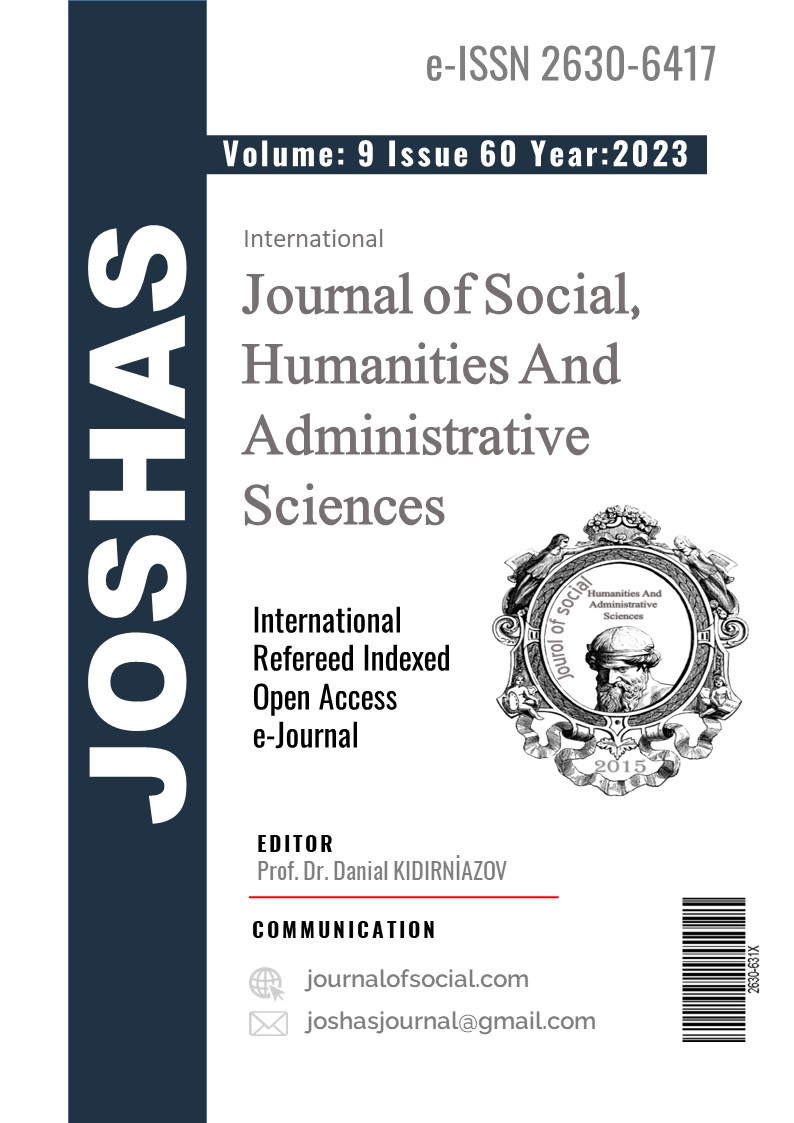Author :
Abstract
Türkiye’de Demokrat Parti’nin(DP) iktidara gelişinin ardından sadece iktisadi ve siyasi alanlarda değil, kültür ve sanat alnında da değişim süreçleri yaşanmıştır. DP döneminde izlenen kültür ve sanat politikalarının, bazı yönleriyle daha önceki Atatürk ve İnönü dönemlerinde izlenen politikalardan farklı olduğu gibi benzeşen yönleri olduğunu söylemek de mümkündür. Bu benzeşme, hedeflenen çağdaş devletler seviyesine çıkma idealidir. Burada çağdaş devletler seviyesi Batı dünyasını ifade etmektedir. Dolayısıyla kültür/sanat alanındaki formlar da Batı kaynaklı olacaktır. DP’ye göre devlet, kültür sahasından elini çekmeli, bu konudaki talepler doğrudan halktan gelmeliydi; dolayısıyla bu da devletin kültürel alandaki sorumluluğunun en aza indirgenmesi anlamına geliyordu. Atatürk ve İnönü döneminin en önemli yapısal özelliklerinden biri kültür/sanat ürünlerinin siyasi iktidarların ideolojisini toplumsal alanda yaygınlaştırmak için araçsallaştırılmasıdır. Bir anlamda kültür/sanat ürünlerinden toplumun bilinçlendirilmesi işlevini görmesi beklenmektedir. DP dönemin2de ise uygulanan politikalarla bu alanda farklı yapısallıkların ortaya çıktığı ve göreli de olsa iktidarın ideolojik tekçiliğinin dışında farklı anlayışlara da yer veren izleklerin oluştuğu görülmektedir. Dolayısıyla bu dönemin en önemli yapısal özelliklerden biri olarak kültür/sanat ürünlerinin siyasi iktidarın ideolojik araçsallaştırmasından bağımsızlaşmasıdır. Bu durum sanatçılara daha geniş bir özgürlük alanı açarak farklılıkların kültür/sanat ürünleri üzerinden sunulabilmesine olanak vermiş bu da daha önceki dönemlere göre yeni bir yapısallık oluşturmuştur. Dolayısıyla bu dönem; gerek dil ve edebiyat gerek plastik sanatlar, sahne sanatları, müzik, sinema hatta kültürel alanın güncel yansıması olarak moda/giyim kuşam yeni yapılanmalarla geleceğin mayalanma süreci olarak öne çıkmakta, önem kazanmaktadır.
Keywords
Abstract
After the Democratic Party (DP) came to power in Turkey, change processes occurred not only in the economic and political fields, but also in the field of culture and art. Although the culture and art policies followed during the DP period were different from the policies followed during the Ataturk and Inonu periods in some aspects, they also had similarities. This similarity is the ideal of reaching the level of the targeted contemporary states. Therefore, the forms in the field of culture/art would be of Western origin. According to the DP, the state should not intervene in the field of culture, and the demands on this issue should come directly from the people, which meant minimizing the responsibility of the state in the cultural field. One of the most important structural features of the Ataturk and İnonu periods is the instrumentalization of cultural/art products to disseminate the ideology of political power in the social sphere. In a sense, cultural/art products are expected to function to increase awareness in society. On the other hand, with the policies implemented during the DP period, different structuralities emerged in this field, and themes that included different understandings were formed apart from the ideological monism of the power, albeit relatively. Therefore, one of the most important structural features of this period is the independence of cultural/art products from the ideological instrumentalization of political power. This situation created a wider area of freedom for the artists and allowed the differences to be presented through culture/art products, which created a new structurality compared to previous periods. Therefore, this period stands out and gains importance as the fermentation process of the future with new structures as a current reflection of language and literature, plastic arts, performance arts, music, cinema, and even cultural field.





